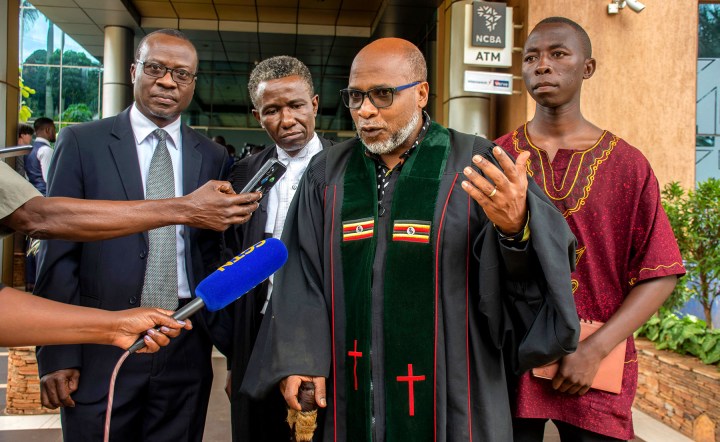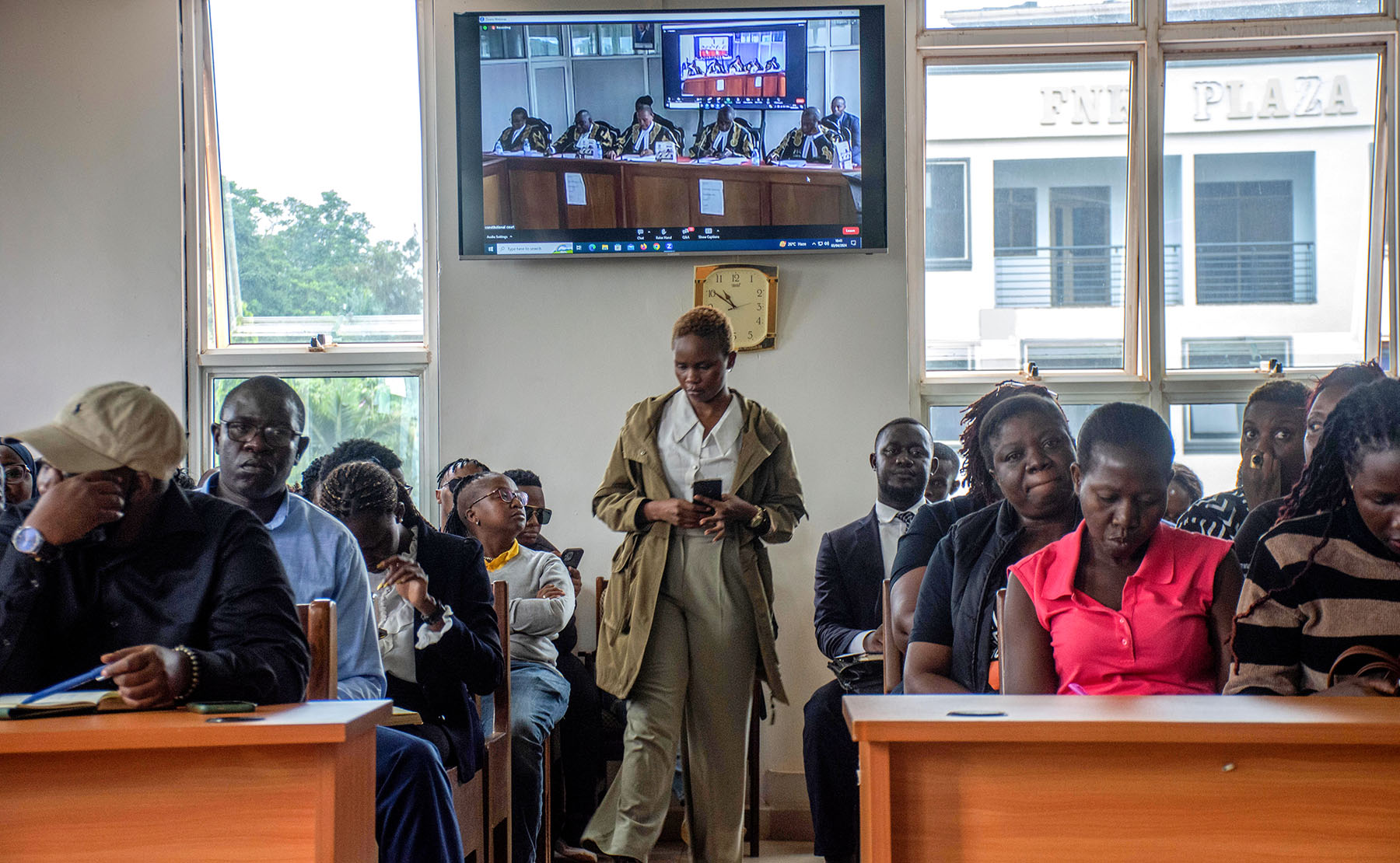ISS TODAY OP-ED
Ghana and Uganda echo each other’s ‘brutally discriminating and disturbing’ clampdown on gays

Ghana’s anti-gay bill passed this year has been widely condemned as ‘brutal, harsh and unjust’. The bill resembles a similar, more notorious one in Uganda. Both countries’ legislation have been following a rather convoluted legislative and political passage.
Ghana, despite its more solid reputation for democracy and respect for human rights than authoritarian Uganda, is joining it in more stringently criminalising homosexuality — and vacillating about the legislation to do that.
Gay sex was already illegal in strongly religious, conservative Ghana before 2021 when legislators tabled the “Promotion of Proper Human Sexual Rights and Ghanaian Family Values Bill” to criminalise even LGBTQI+ advocacy, and impose harsher jail terms for same-sex relations.
The bill resembles a similar, more notorious one in Uganda, and both countries’ legislation have been following a rather convoluted legislative and political passage.
Uganda’s parliament first passed the draconian Anti-Homosexuality Act in 2013. This criminalised consensual same-sex conduct, with penalties of up to life imprisonment, and the death penalty for those convicted of “aggravated homosexuality”, which could include just repeated consensual same-sex acts.
As the Institute for Security Studies pointed out last September, homosexuality is already a crime punishable by at least imprisonment in 33 of 55 African countries.
The Constitutional Court annulled the law because it wasn’t passed according to correct parliamentary procedure, but the basic bill was eventually passed in May 2023.
In March this year, the Constitutional Court overrode most human rights challenges and upheld the essence of the law. It did strike down sections that restricted healthcare access for LGBTQI+ people, criminalised renting premises to LGBTQI+ people, and created an obligation to report alleged acts of homosexuality.
“The decision to scrap only two sections of the law is nothing but window dressing,” said Nate Brown and Julia Ehrt, Executive Directors of Pan Africa ILGA and ILGA World. They noted that the “brutally discriminatory” act still, for example, contained the death penalty for some consensual same-sex sexual acts.
“Under the guise of upholding the right to health and privacy, the ruling continues to disregard the rights of LGBTQ and gender-diverse people in Uganda,” said Ehrt.

Ugandan LGBTQI+ activists and community members listen to proceedings at the Constitutional Court in Kampala, Uganda, on 3 April 2024. The law, passed in March 2023, imposes the death sentence and life imprisonment for certain homosexual acts. (Photo: EPA-EFE/ISAAC KASAMANI)
Uganda and Ghana’s presidential ‘dances’
Ugandan President Yoweri Museveni has created ambiguity about his attitude towards the legislation, including calling on parliament to revise the original draft before it was passed in May last year. He had also indicated ambivalence about the earlier 2013 version of the bill. His critics believe this is posturing to placate Western donors who have strongly condemned the legislation.
Ghana’s President Nana Addo Akufo-Addo appears to be doing a similar dance around his country’s similar legislation, and probably for similar reasons. At a press conference with US Vice-President Kamala Harris during her West African tour last year, he hinted at amendments to dilute the bill and reflect human rights concerns.
The bill nevertheless passed through parliament in February this year with most of its measures intact. Though not as stringent as its Ugandan equivalent, the bill still included penalties of up to three years imprisonment just for identifying as LGBTQ+ and five years for promoting, sponsoring or otherwise supporting LGBTQ+ activities.
United Nations High Commissioner for Human Rights Volker Türk called on Ghana not to enact the bill, which he called “profoundly disturbing”.
“The bill broadens the scope of criminal sanctions against lesbian, gay, bisexual, transgender, transexual and queer people — simply for being who they are — and threatens criminal penalties against perceived allies of LGBTQ+ people,” said Türk in a statement.
Read more in Daily Maverick: Growing number of anti-gay laws highlight Africa’s steady human rights regression
Several human rights advocates and prominent Ghanaians have also condemned the bill. Samia Nkrumah, a former member of parliament and chair of a major political party in Ghana — and daughter of Kwame Nkrumah, who led the country to independence — called the bill “brutal, harsh, and unjust”.
And so Akufo-Addo is again demurring, holding off on signing the bill until the continuing legal challenges have been settled. His hesitation is causing internal and external friction. In March, Speaker of Parliament Alban Bagbin reportedly halted Parliament’s confirmation of new cabinet ministers, protesting against what he called the president’s “contemptuous” undermining of parliamentary authority.
The legislation earlier provoked considerable tensions between the conservative Ghanaian Anglican church hierarchy which supported the bill, and the liberal mother church in England, which strongly opposes it. The Ghana Anglicans last year stepped back a bit from their support, criticising the harshness of some of the penalties, but did not condemn the bill outright.
Akufo-Addo, like Museveni, is caught between local popular pressure to sign the bill, and Western donors and human rights groups urging him not to sign it into law.
Paying for actions?
Media reports say Ghana could lose World Bank funding amounting to US$3,8-billion over the next five to six years if the legislation is enacted. This while Ghana is grappling with a severe economic crisis, recently received a bailout from the International Monetary Fund, and is seeking forgiveness for much of its international debt.
Some critics see Ghana and Uganda’s homophobic legislation as disturbing evidence of a sort of continental contagion. As ILGA World’s Ehrt said on the Uganda Constitutional Court’s upholding of the Anti-Homosexuality Act: “This act sets … a dangerous precedent and might inspire similar initiatives in neighbouring countries: instead of doing away with the colonial legacy of criminalisation of consensual same-sex sexual acts, it aggravates and solidifies that legacy.”
But if so, the homophobic threat is nothing new across much of the continent. As the Institute for Security Studies pointed out last September, homosexuality is already a crime punishable by at least imprisonment in 33 of 55 African countries. It added that from 2023 to date, six states — Kenya, Ghana, Namibia, Niger, Tanzania and Uganda — had strengthened their anti-homosexuality laws.
The article noted that the African Union (AU) had seemingly taken no position on the criminalisation of homosexuality — possibly reflecting its own ambivalence, caught between the popular will and its ostensible principles.
But it is surely time that the AU and Africa’s leadership more generally summoned the moral courage to fight the prejudice of today as they fought the prejudices of yesterday. DM
Peter Fabricius, Consultant, Institute for Security Studies (ISS) Pretoria.
First published by ISS Today.





Comments - Please login in order to comment.